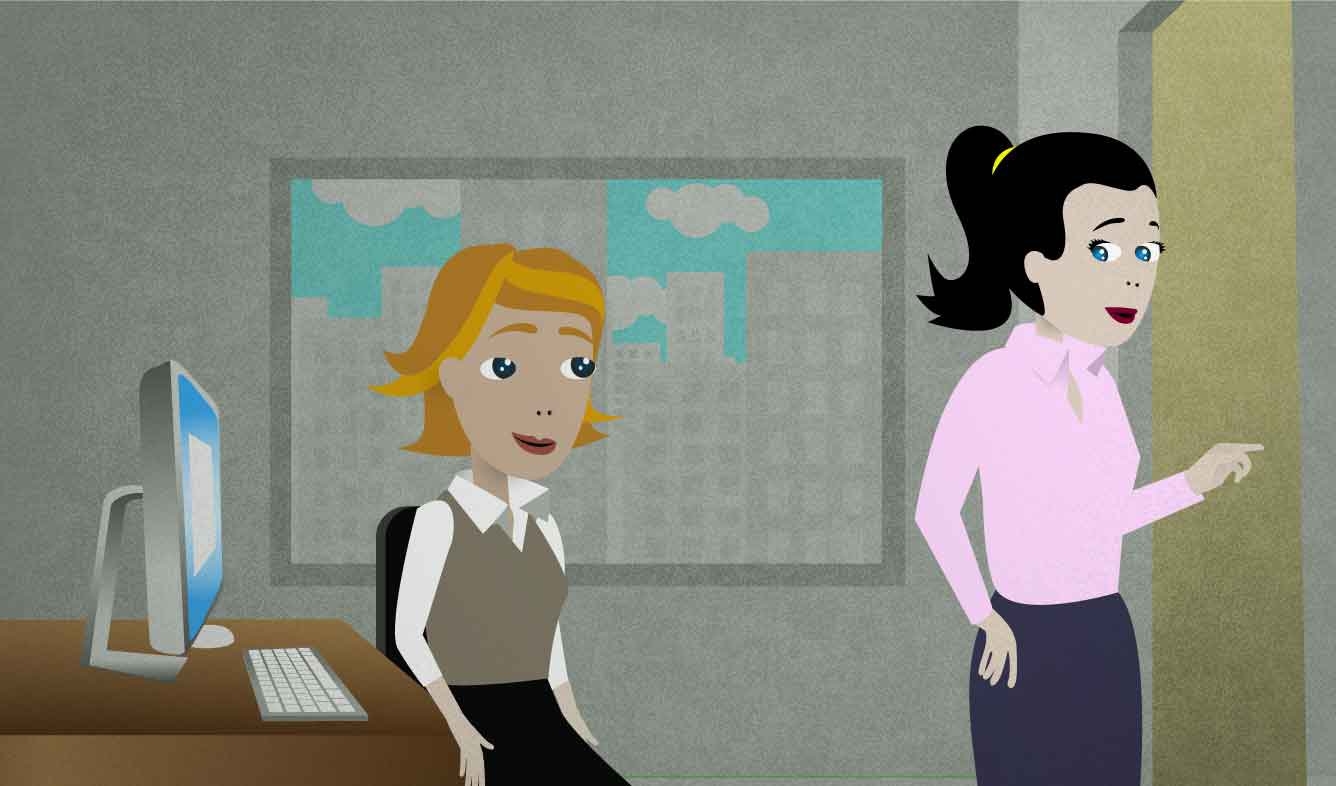“If you get stuck, come grab me and I’ll be happy to help.”
You're training a new employee in your department at work. You've showed her how to do a task. Now you're going to let her try it by herself. You say this before you leave.
If you get stuck, come grab me and I’ll be happy to help.
Want Video and Sound? Follow us on YouTube

I'd be happy to (do something)
Use this phrase to politely offer to do something.
For example, you can say this to someone who's visiting your company from another country:
I'd be happy to show you around, if you'd like.
You can also offer to do something with "I'll be happy to ___". This version is more appropriate after "if":
If this one doesn't work for you, I'll be happy to bring you a new one.
These phrases are polite, so you can use them with people you don't know very well.
(someone) gets stuck
"Getting stuck" happens when you're trying to figure out something difficult, like a math problem or repairs for a machine.
You use this phrase like this:
I was trying to do the Sunday crossword puzzle, but I got stuck.
You can also specify what part you got stuck on.
A: Were you able to figure out the homework?
B: I did most of it, but I got stuck on question 15.
grab (someone)
This is a casual way to talk about getting help from someone:
Just grab one of the librarians if you need help finding anything.
A: Ready?
B: Sure.
A: OK, I'll grab a waiter.
